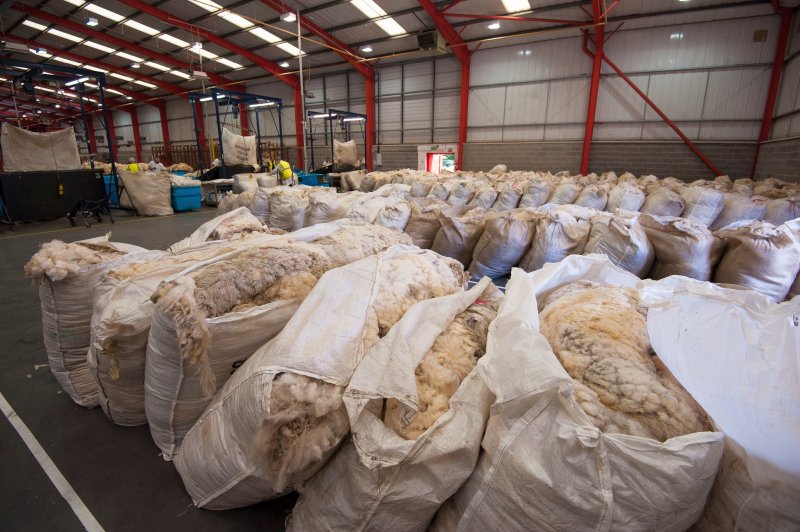
Wool returns have reached their highest level since 2018, driven by robust demand and strong auction prices, according to British Wool.
March auctions recorded an average sale price of £1.00 per kilogram—the highest since October 2018, and 18p per kg higher than last year.
Coupled with strong cost control, this price increase has flowed through to improved farmer return, the co-operative said today (12 May).
There has been a notable resurgence in demand for cross-bred wool during the autumn and winter months, with both the UK and New Zealand markets experiencing significant recovery.
Jim Robertson, chairman of British Wool, said that, as a result, member returns had increased by 70% this year.
“Demand for British wool through the middle of the selling season was exceptional, with many auctions having nearly full clearance,” he added.
By mid-April, British Wool had sold 83% of its available stock, with the remainder scheduled for auction in May and June ahead of the new season’s wool becoming available in July.
Over the past 12 months, the Bradford-based co-operative has made a concerted effort to boost demand for homegrown wool.
Its Yarn and Fabric collections, presented internationally, have helped expand its network of brand partners to more than 170, all of whom specify British wool-sourced fibre in their products.
Despite rising prices, British Wool said it had seen a decline in the volume of wool received in recent years.
It is thought some farmers have opted to store their wool or use it on-farm rather than deliver it to a depot or collection centre.
Mr Robertson said: “As wool prices improve; better returns should hopefully encourage more UK farmers to send in their wool.
"This year, British Wool will be opening several new collection centres around the UK to improve convenience for members.
"We want to make it as easy as possible for farmers to deliver their wool."
British Wool, owned by approximately 30,000 sheep farmers in the UK, collects, grades, sells and promotes wool to the international wool textile industry.
